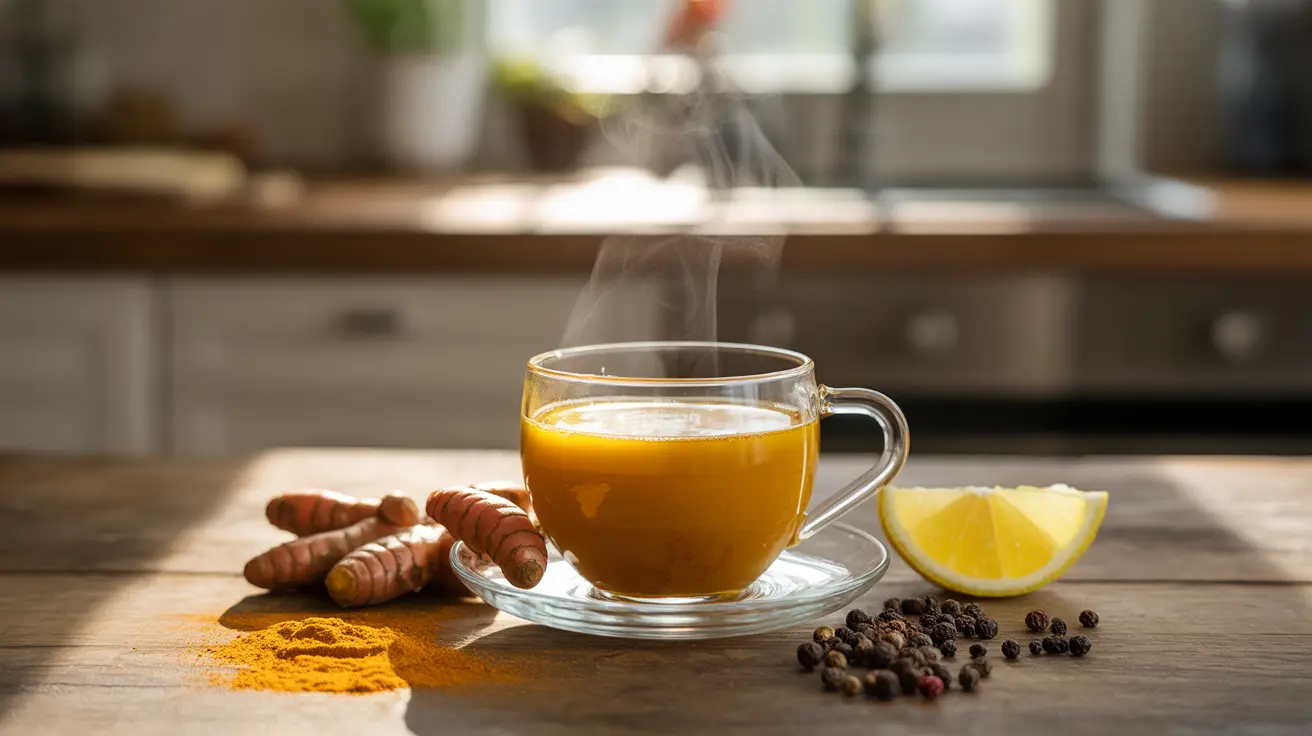Turmeric tea has emerged as a powerful beverage choice for health-conscious individuals seeking natural ways to support their wellbeing. This golden-hued drink, made from the ancient spice turmeric, combines centuries of traditional use with modern scientific backing to offer numerous potential health benefits.
Understanding how to properly prepare and consume turmeric tea, along with its benefits and potential considerations, can help you make the most of this therapeutic beverage. Let's explore everything you need to know about incorporating turmeric tea into your wellness routine.
Understanding Turmeric Tea's Active Compounds
The primary beneficial compound in turmeric tea is curcumin, a potent antioxidant and anti-inflammatory substance. However, curcumin alone has poor bioavailability, meaning your body needs help to properly absorb and utilize it.
Other beneficial compounds in turmeric tea include:
- Turmerones
- Demethoxycurcumin
- Bisdemethoxycurcumin
- Essential oils
Key Health Benefits of Turmeric Tea
Anti-inflammatory Properties
One of turmeric tea's most significant benefits is its potential to reduce inflammation throughout the body. Regular consumption may help manage chronic inflammation associated with various conditions, including joint pain and digestive issues.
Antioxidant Support
The powerful antioxidants in turmeric tea help combat oxidative stress and free radical damage in the body. This protection may contribute to better cellular health and reduced signs of aging.
Digestive Health
Drinking turmeric tea may help:
- Reduce bloating and gas
- Support healthy digestion
- Calm digestive discomfort
- Promote beneficial gut bacteria
How to Prepare Turmeric Tea Properly
Basic Recipe
To make effective turmeric tea:
- Use 1-2 teaspoons of ground turmeric
- Add to 2 cups of hot water
- Simmer for 10-15 minutes
- Strain if using fresh turmeric root
- Add honey or lemon to taste
Enhancing Absorption
To maximize curcumin absorption, add:
- Black pepper (contains piperine)
- A healthy fat source (coconut oil, ghee)
- Ginger (optional, for additional benefits)
Safety Considerations and Precautions
While generally safe for most people, certain individuals should exercise caution when consuming turmeric tea:
Potential concerns include:
- Blood-thinning effects
- Interaction with certain medications
- Digestive issues in sensitive individuals
- Pregnancy and breastfeeding considerations
Frequently Asked Questions
What are the health benefits of drinking turmeric tea?
Turmeric tea offers numerous health benefits, including reduced inflammation, improved antioxidant status, better digestive health, and potential pain relief. Regular consumption may also support immune function and help manage chronic conditions.
How can I make turmeric tea to improve curcumin absorption?
To enhance curcumin absorption, combine turmeric with black pepper and a source of healthy fat. Add a pinch of black pepper and a teaspoon of coconut oil or ghee to your turmeric tea. Simmer for 10-15 minutes to ensure proper extraction of beneficial compounds.
Are there any risks or side effects of drinking turmeric tea regularly?
While generally safe, some people may experience mild digestive upset, especially when first starting. High doses may interact with blood-thinning medications. It's best to start with small amounts and gradually increase consumption while monitoring for any adverse effects.
Can turmeric tea help reduce inflammation or arthritis pain?
Yes, turmeric tea's active compound curcumin has shown significant anti-inflammatory properties that may help reduce arthritis pain and inflammation. Regular consumption, combined with proper preparation methods, may provide relief from joint discomfort.
Is turmeric tea safe to drink during pregnancy or if I take medications?
Pregnant women should consult their healthcare provider before consuming turmeric tea regularly. Those taking medications, especially blood thinners, diabetes medications, or acid reducers, should discuss turmeric tea consumption with their healthcare provider due to potential interactions.




